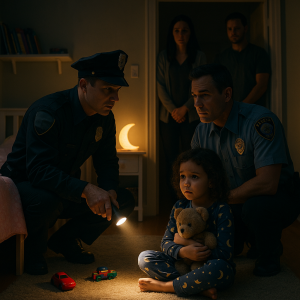For millions of viewers, Henry Winkler will forever be remembered as Arthur “Fonzie” Fonzarelli, the effortlessly cool star of Happy Days. But behind the leather jacket and iconic catchphrases was a young man carrying a private battle—one that went undiagnosed until well into adulthood.
Early Struggles and Misunderstandings
Growing up in New York City, Winkler faced high expectations from his German immigrant parents, who placed enormous value on education. But for young Henry, school was a daily source of frustration.
“My parents thought I was lazy. I was called lazy, I was called stupid, I was told I was not living up to my potential,” Winkler recalled in an interview with The Yale Center for Dyslexia & Creativity.
Despite his best efforts, reading and writing remained nearly impossible. His parents responded with punishments, grounding him for long stretches in hopes that more time at his desk would “fix” the problem. Winkler later said he spent much of his teenage years isolated, missing out on dances, plays, and social milestones.
“I don’t want to be stupid,” he once remembered thinking. But the harder he tried, the further behind he seemed to fall.
Finding His Way to Acting
Despite the setbacks, Winkler pushed forward academically, ultimately earning a Master of Fine Arts from Yale University. But even after graduating, his difficulties didn’t disappear.
Reading scripts proved daunting. “I improvised. I never read anything the way that it was written in my entire life,” he said. “I could instantly memorize a lot of it, and what I didn’t know, I made up and did with conviction.”
His talent and charisma carried him, eventually leading to his breakout role as Fonzie. Yet even at the height of his fame, Winkler struggled with public table reads. “I embarrassed myself for 10 years,” he admitted. “I stumbled over every word. Memorizing—if it’s written well—my brain is then able to suck it up like a vacuum cleaner.”
A Diagnosis That Changed Everything
It wasn’t until his stepson began experiencing similar difficulties that Winkler considered another explanation. After testing, the boy was diagnosed with dyslexia—a revelation that prompted Winkler to reflect on his own lifelong challenges.
At age 31, he finally had an answer. “I didn’t read a book until I was 31 years old when I was diagnosed with dyslexia,” Winkler said. “Books terrified me. They made me nervous.”
The discovery brought relief but also anger. “I got very angry,” he admitted. “Because all of the arguments in my house with the short Germans who were my parents were for naught. All of the grounding was for naught.”
Turning Struggle Into Inspiration
Instead of allowing frustration to define him, Winkler chose to use his platform to inspire others. He began writing Hank Zipzer, a best-selling children’s book series about a young boy with dyslexia. The series resonated deeply with children, many of whom saw their own experiences reflected for the first time.
“Every child who writes me a letter about Hank Zipzer, I write back,” Winkler said. “In every letter I include, ‘Your learning challenge will not stop you from meeting your dream. Only you will stop yourself from meeting your dream.’”
Lasting Legacy
Today, Winkler is celebrated not only as an Emmy-winning actor but also as an author and advocate. In addition to his children’s books, he has co-written multiple titles and recently announced the release of his memoir in 2024.
While his career boasts decades of accolades, Winkler insists his proudest achievements are his books. “Outside of my family, my proudest moment, no matter what I have achieved, are the books,” he said.
From misunderstood student to beloved actor and children’s author, Henry Winkler’s journey is a testament to resilience. His story reminds us that learning differences do not define limitations—and that with perseverance, empathy, and support, barriers can become stepping stones.





